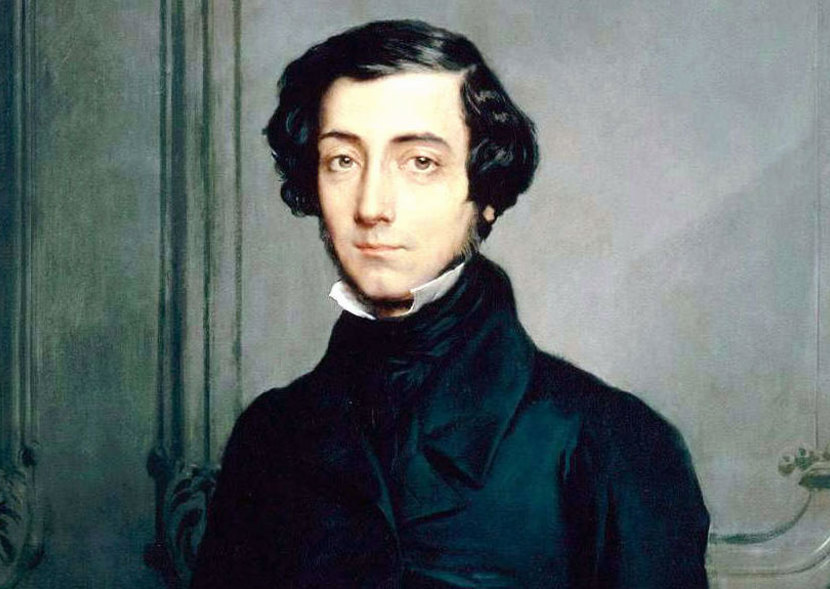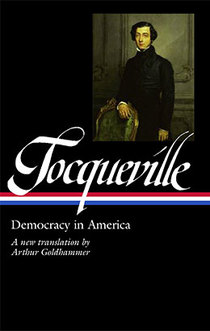
Major works:
Democracy in America
Alexis de Tocqueville was a French historian, politician, and writer, best known for his penetrating analysis of American democracy. Born in Paris on July 29, 1805, to a Norman aristocratic family, Tocqueville is best remembered for Democracy in America, his sweeping two-volume account of American political and social life. Originally sent by the French government in 1831 to study the American prison system, Tocqueville spent nine months traveling through the United States, interviewing more than two hundred people on topics ranging from governance and slavery to the role of religion and women. The first volume of Democracy in America, published in 1835, brought him wide acclaim and membership in the prestigious Légion d’honneur. The second volume, published in 1840, revealed Tocqueville’s growing worries about the societal effects of equality, influenced by his recent observations of declining freedoms under France’s Liberal government. In 1856, at the end of a turbulent political career, Tocqueville published The Old Regime and the Revolution, an investigation into pre-revolutionary French society. After his death in 1859, his former companion traveling companion Gustave de Beaumont edited and published Memoir, Letters, and Remains of Alexis de Tocqueville, which contained two volumes of previously unpublished material.
“Today, Democracy in America is acknowledged by both liberals and conservatives as the best book ever written about our system of government and our national character.”—Michael Dirda, The Washington Post
“Open-eyed, restless, theoretical but also pragmatic, interested in everything most American and most un-French, [Tocqueville] enacts the love of freedom he proclaims. He is the connoisseur of difference. His unadorned intellectual charm has to do with his lack of pettiness. Unlike some other European visitors (Charles Dickens and Fanny Trollope, and, more recently, Jean Baudrillard and Bernard-Henri Lévy come to mind), he reserves serious judgment for mortal American sins, not venial ones.” —James Wood, The New Yorker
Democracy in America
Alexis de TocquevilleHow is it that in the United States, whose residents, leaving customs and memories behind, came only recently to the land they now inhabit, where they met as strangers for the first time and where, to put it bluntly, it is scarcely possible for a patriotic instinct to exist—how is it that everyone in the United States takes an interest in the affairs of his town, county, and state as though they were his own? The answer is that, within his own sphere, each person takes an active part in the government of society.
In the United States, the common man has understood how the general prosperity affects his own happiness—a very simple idea, yet one of which the people in most countries have only a very limited grasp. What is more, he has become accustomed to looking upon that prosperity as his own handiwork. He therefore identifies the public fortune with his own, and he works for the good of the state not only out of duty or pride but, I would almost venture to say, out of greed.
